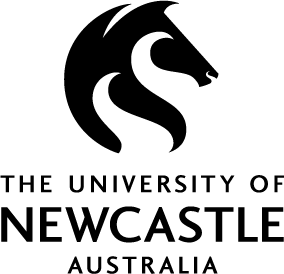At the University of Newcastle, we train electrical engineers capable of solving the world's greatest challenges. With a Bachelor of Electrical and Electronic Engineering (Honours), you could work in a range of roles. This might include power systems, renewable energy technologies, industrial electronics, robotics, control and automation systems, Industry 4.0, or telecommunication systems.
You might develop precision agriculture technology to increase food production efficiency. You might even build smart grid systems to help manage alternative energy resources. Opportunities also exist in the development of electric vehicle drives for air, land and sea. Or follow in the footsteps of our researchers and develop life-changing medical technology.
Our position as one of the most highly ranked engineering faculties in Australia is recognised through our associate membership of the Group of Eight.
One of only three Australian member institutions of the Global Engineering Education Exchange Program.
What you will study
Tackle real-world challenges through professional practice courses and diversify your skills through four elective pathway courses.
You will build critical technical and engineering skills in:
- Electrical machines, power systems and renewables
- Control systems and signal processing
- Communications systems and internet of things
- Electrical and electronic engineering design
- Embedded computing and procedural programming
Connect with industry through guest lectures and interdisciplinary projects solving real world problems with electrical and electronic engineering solutions. Gain invaluable practical experience through your industry placement.
Become job-ready through our professional practice courses. You'll learn to tackle ‘wicked problems’ and develop essential workplace skills in finance, project management, sustainability, communication and entrepreneurism.
Diversify your skills and engineering degree with an elective pathway, a cluster of courses which can be used to:
- deepen your technical competence in your engineering field
- broaden your expertise in another area of engineering
- learn skills in areas outside engineering, such as business or maths
- study overseas at one of our many partner institutions.
Tafe pathway
Students accepted into the Bachelor of Engineering (Hons) (Electrical & Electronic) can opt to combine their degree with the UEE30811 Certificate III in Electrotechnology Electrician through TAFE NSW.
By gaining a Certificate III in Electrotechnology Electrician alongside your Bachelor of Electrical and Electronic Engineering (Honours), you’ll be qualified to independently test and complete wiring modifications. By having this dual qualification, you will be able to work independently from project commissioning to break down repairs and maintenance making you highly employable as a graduate.
Students on this pathway must be accepted into an apprenticeship with an appropriate employer. This pathway extends over 5 years with combined study at University and TAFE including periods of full-time employment and workplace training. UON is the only university in Australia offering this pathway.
Advanced study options
Entry Requirements
Admission to this program is available to Australian students, residents and international students. Admission information for Australian students and residents is available online here. Admission information for international students can be found here. During the admission process, adjustment factors may be applied to your Selection Rank. Please visit our website to see if you are eligible.
English Program Requirements
All Applicants must demonstrate that they meet the University’s English proficiency requirement. Further information regarding English language proficiency requirements can be found at the English Language Proficiency for Admission Policy here.
Applicants for this program must satisfy a minimum English Language Proficiency Standard equivalent to an IELTS overall minimum of 6.0 with no subtest result below 6.0.
English Requirements
Career
Electrical engineers are employed in utilities, industry, manufacturing, transportation, consulting services and electronic design and development. Graduates might focus on electronics engineering. They could specialise in automation and control engineering, or they may work in robotic engineering or power generation and distribution. Average starting salaries for engineers are great – more than $70,000 per annum.*
Electrical engineering is flexible and diverse. You may prefer hands-on fieldwork, design and development, or a leadership role managing people and projects. Typical positions include:
- Telecommunications Equipment Engineer
- Electrical Design Engineer
- Automatic Control Systems Engineer
- Robotics Engineer
- Biomedical Instrumentation Engineer
- Electronics Design Engineer
- Renewable Energy Systems Engineer
- Automation Engineer
Complete one extra year of study and broaden your options with the Master of Professional Engineering.
